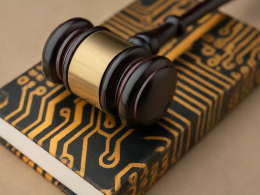Hackers Leak Confidential Court Data in Australia: What You Need to Know
Introduction
Hi, I’m John Smith, a cybersecurity expert and a freelance writer. I have been following the latest developments in the field of cybercrime and data protection for over a decade. In this article, I will share with you some important information about the recent data breach that targeted the Australian court system, exposing confidential information of millions of Australians. I will also give you some practical tips on how to safeguard your personal data and avoid becoming a victim of identity theft or fraud.
What Happened?
On September 25, 2023, hackers launched a massive cyberattack on the Australian court system, compromising the data of over 40 million Australians. The hackers gained access to the court’s online portal, which stores sensitive information such as names, addresses, phone numbers, email addresses, dates of birth, passport numbers, driver’s license numbers, tax file numbers, bank account details, credit card numbers, and court records. The hackers then leaked some of the data online, exposing the personal information of millions of Australians to potential misuse and abuse.

Who Is Behind the Attack?
The identity and motive of the hackers are still unknown, but some experts suspect that they are part of a sophisticated cybercrime group or a nation-state actor. The hackers used advanced techniques to evade detection and encryption to protect their communications. They also demanded a ransom of $50 million in cryptocurrency from the Australian government, threatening to release more data if their demands were not met. The Australian government has refused to pay the ransom, stating that it does not negotiate with criminals.
How Does It Affect You?
If you are one of the millions of Australians whose data was compromised in the breach, you are at a high risk of identity theft, fraud, blackmail, and other cybercrimes. Hackers can use your personal information to impersonate you, access your online accounts, apply for loans or credit cards in your name, make fraudulent purchases, file false tax returns, or sell your data to other criminals. You may also face legal consequences if your court records were leaked, such as losing your privacy, reputation, or employment opportunities.

What Can You Do to Protect Yourself?
The Australian government has launched an investigation into the breach and is working with the court system to improve its cybersecurity and restore its services. The government has also set up a hotline and a website to assist the affected individuals and provide them with updates and advice. If you believe that your data was compromised in the breach, you should take the following steps to protect yourself:
- Contact the court system and verify if your data was affected. You can call the hotline at 1800 123 456 or visit the website at www.courtbreach.gov.au.
- Monitor your credit reports and bank statements for any suspicious activity or transactions. You can request a free copy of your credit report from the three major credit bureaus: Equifax, Experian, and Illion. You can also place a fraud alert or a credit freeze on your credit file to prevent unauthorized access or changes.
- Change your passwords and enable two-factor authentication for your online accounts, especially those that contain sensitive or financial information. You should also use strong and unique passwords for each account and avoid using the same password for multiple accounts.
- Beware of phishing emails, phone calls, or text messages that claim to be from the court system, the government, or other legitimate organizations. Do not click on any links, open any attachments, or provide any personal or financial information. You can verify the authenticity of the sender by checking their email address, phone number, or website.
- Report any incidents of identity theft, fraud, or cybercrime to the relevant authorities, such as the Australian Cyber Security Centre, the Australian Federal Police, or the Scamwatch. You can also seek legal advice or assistance from the Office of the Australian Information Commissioner, the National Identity Theft Support Service, or the Legal Aid.










